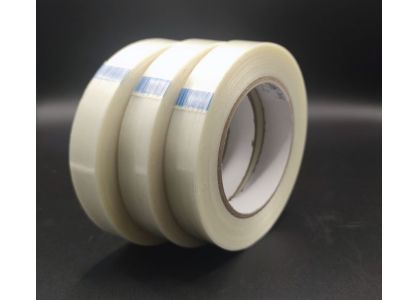
Choosing the right filament electrical tape can be a game-changer for your projects, whether you’re a DIY enthusiast or managing industrial applications. With a plethora of options available, it's vital to understand the key features and unique qualities that make fiberglass insulation tape with adhesive, transparent filament tape heat resistant, filament insulation tape, and high-strength fiberglass electrical tape stand out. In this blog, we’ll explore what to look for in quality control when selecting electrical tape and dive into some delightful yet unexpected aspects of this remarkable product.
At its core, filament tape is a type of pressure-sensitive tape reinforced with fiberglass filaments. This design gives it exceptional strength and durability, making it an ideal choice for various applications, including bundling, holding, and reinforcing. Before delving into quality control measures, let’s quickly recap why this tape is so highly valued.
Fiberglass insulation tape with adhesive offers outstanding thermal resistance, making it perfect for applications that require heat insulation. Notably, transparent filament tape heat resistant is designed to withstand high temperatures, typically up to 155°C, while maintaining its integrity. This feature is crucial for both industrial and residential uses. The clarity of this tape also allows for a clean and professional appearance, especially in projects where aesthetics matter.
When evaluating filament electrical tape for quality, consider the following features:
The adhesive used on the tape is paramount. High-quality adhesives provide a strong, long-lasting bond that can handle various surfaces, from metal and plastic to wood. When assessing adhesive quality, check for temperature tolerance and resistance to delamination. A good tape should maintain its adhesive properties even under stress or temperature fluctuations. It’s important to note that filament insulation tape often features an adhesion strength to steel of 12-15 N/25mm, making it suitable for demanding tasks.
Tensile strength is the measurement of how much force a tape can withstand without breaking. This characteristic is particularly crucial for tasks involving heavy objects or environments where strain is expected. Make sure the tape is labeled for high tensile strength to ensure it meets your project demands. Additionally, durability is key; look for an abrasion-resistant formulation designed to resist wear and tear, ensuring longevity even in rugged conditions where mechanical stress might otherwise compromise its integrity.
Tape thickness can significantly impact both the application and performance. Typical thicknesses range from 0.13mm to 0.17mm, with thicker tapes offering more durability while thinner options can be easier to manipulate. It’s essential to choose the right width as well—too narrow might not provide enough coverage, while too wide could be unnecessary for smaller tasks. Many suppliers offer customized widths to meet specific project needs.
Bar none, temperature resistance is an essential feature. Both transparent filament tape heat resistant and high-strength fiberglass electrical tape are designed to endure extreme conditions. With a maximum operating temperature of 155°C for many filament tapes, it’s wise to check the specifications and ensure compatibility with your application environment.
In cases where tape might be exposed to chemicals—think factories or homes with harsh cleaning agents—choosing a tape that can resist corrosion is crucial. Always check the manufacturer’s specifications for chemical resistance properties.
Beyond the standard quality control features, there are a few often-overlooked aspects of filament electrical tape that can significantly impact performance.
How the tape is stored and dispensed can affect its usability. Tapes should be wound tightly to avoid tangling and breaking. When purchasing, consider how easy it is to dispense the tape from the roll. Some tapes come with a built-in cutting edge or dispenser, streamlining your workflow and saving time when working on large projects.
Some tape manufacturers now incorporate visual indicators into their products. This could be in the form of color coding or printed indicators that warn when the tape is nearing its tensile limit. This feature serves as a valuable reminder to users, ensuring that their applications remain secure and effective.
Sustainability is a growing concern, and customers are increasingly looking for eco-friendly options. Some tapes are made from recycled materials or are designed to be recyclable. If environmental impact is essential to you, research manufacturers that prioritize sustainable production practices.
Implementing these features into your quality control process is vital. Look for manufacturers that hold certifications relevant to your region; these could include UL certification or domestic certifications. Regular testing for tensile strength, adhesive performance, and thermal stability is essential to ensure the tape meets the promised specifications.
Pre-purchase, request samples to test in your environment. This hands-on approach allows you to assess the tape’s performance against your requirements.
Selecting the right fiberglass insulation tape with adhesive, transparent filament tape heat resistant, filament insulation tape, or high-strength fiberglass electrical tape requires careful evaluation. You want a product that not only meets basic quality standards but also exceeds expectations in areas you might not initially consider.
Whether you're embarking on a new project or aiming to streamline your operations, keeping these factors in mind can lead to improved performance and satisfaction with your tape choices. The right tape can make all the difference, enhancing your work and ensuring it stands the test of time. Happy taping!